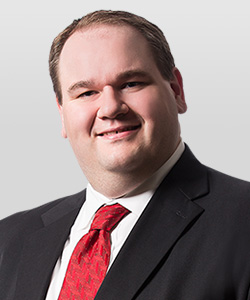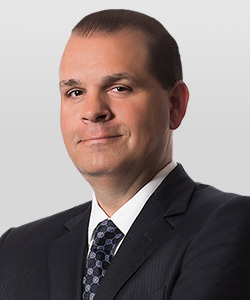Is Wearing A Mask Protected Activity?
Today, public sector employers are presented with new legal issues as they deal with the global pandemic resulting from COVID-19. As employees start returning to work throughout the country, numerous questions of legality arise including whether an employer may institute a policy requiring their employees to wear a protective face mask at the workplace. Private sector employees tend not to have the same protection under the First Amendment enjoyed by public sector employees, nevertheless, many of the issues covered below may also apply to private employers.
Simply stated, the relevant questions would be: May an employer discipline an employee for refusing to wear a mask? Could an employee’s refusal to wear a mask qualify as protected speech under the First Amendment? May an employee wear a mask with a political or public service message and what must an employer evaluate in such a situation? Each one of the foregoing scenarios presents a case-by-case assessment, but ultimately, the line that employers must define is between safety and protected activity.
As to public sector employees, it is well-established that an employee “… does not forgo his or her right to freedom of speech simply by accepting public employment.” Werkheiser v. Pocono Twp., 210 F. Supp. 3d 633, 636-637 (2016) (quoting Beilan v. Board of Public Ed., School Dist. of Philadelphia, 357 U.S. 399, 78 S. Ct. 1317, 2 L. Ed. 2d 1414 (1958)). Furthermore, “… a State cannot condition public employment on a basis that infringes the employee’s constitutionally protected interest in freedom of expression.” Connick v. Myers, 461 U.S. 138, 142, 103 S. Ct. 1684, 75 L. Ed. 2d 708 (1983).
Speech need not necessarily be verbal, but “… extends to many activities that are by their very nature non-verbal: an artist’s canvas, a musician’s instrumental composition, and a protester’s silent picket … are all examples of protected, non-verbal “speech.” See Steadman v. Texas Rangers, 179 F.3d 360, 367, 1999 U.S. App. LEXIS 14972, *16-17, 15 I.E.R. Cas. (BNA) 404. When assessing whether non-verbal conduct is “expressive conduct,” and therefore speech protected by the First Amendment, the Courts will employ a “two-part test” as follows: (1) the actor must intend to convey a particularized message, and (2) there must be great likelihood that the message could be understood by those who observe the conduct.” Goodman v. Los Lunas, 2005 U.S. Dist. LEXIS 59016, *11-12 (D.N.M., 2005); Bivens By and Through Green v. Albuquerque Public Schools, 899 F.Supp. 556, 561 (D.N.M., 1995) (concluding that Plaintiff failed to meet burden of showing that wearing of sagging pants is constitutionally protected speech under the First Amendment). Applying this two-part test, non-verbal conduct such as the refusal to wear a mask or wearing a mask with a political statement will likely be considered speech as established by our Courts. However, this assessment will be made on a case-by-case basis and must be measured against whether an employer has a legitimate right to infringe upon the protected speech.
This balancing occurs within the “Pickering” test established in Pickering v. Board of Ed. of Township High School Dist. 205, 391 U.S. 563 (1968) and modified by Garcetti v. Ceballos, 547 U.S. 410 (2006). Within this modified Pickering test, courts first determine whether the speech was made pursuant to the employee’s official job duties. If the speech was made in relation to the employee’s job duties, then the First Amendment claim fails. If the speech was not made pursuant to official job duties, the court then continues in applying the Pickering test. Under the Garcetti test, a government entity has broader discretion to restrict speech when it acts in its role as employer, but the restrictions it imposes must be directed at speech that has some potential to affect the entity’s operations. Therefore, “[a]n employer may not interfere with an employee’s First Amendment rights unless there is evidence that the employee’s actions have actually disrupted the workplace or are reasonably likely to do so in the future.” Nichols v. Dancer, 657 F.3d 929, 931 (9th Cir. 2011).
Through this framework, although there is no found case-law directly on point, we believe it likely that a public-sector employer may discipline an employee for refusing to wear a mask while employed because of the potential to affect the safety of the entity’s operations. What if, however, an employee agrees to wear a mask but does so with a political message or one that makes a statement based about a protected class, such as race, age, sex, gender, national origin or similar? For public sector employees, such comments are likely to meet the elements of a “mater of public concern,” which is defined as “… a subject of legitimate news interest, that is, a subject of general interest and of value and concern to the public at the time of publication.” City of San Diego v. Roe, 543 U.S. 77, 83-84 (2004). Such speech would likely qualify as a public concern and government action against an employee wearing a mask with a political or public concerning message or statement and subject the employer’s action to stricter scrutiny. As a comparable example, in Godwin v. Rogue Valley Youth Corr. Facility, 656 Fed. App’x 874 (9th Cir. 2016), it was found that an employee’s wearing of a motorcycle club insignia and associating with members of this club was determined to be protected speech under the First Amendment as (1) it related to a matter of public concern, (2) it did not interfere with his job duties, (3) Plaintiff had been affiliated with the motorcycle club for 14-years, (4) Plaintiff was an exemplary employee, and (5) the employer’s fears for future disruption were speculative as Plaintiff offered not to wear the motorcycle club colors or attend meetings in the future.
While private sector employees may not enjoy First Amendment protections, a similar analysis should be undertaken if an employee wears a mask with a political or public interest message. If the mask contains language or symbolism which would tend to make a statement about a protected class, the employer should ensure that any action it takes as to that employee has a legitimate business-related reason that is consistent with policy and is documented contemporaneously with the decision. For example, if an employee wears a mask with an opinionated statement or insignia, the employer should be able to demonstrate actual or substantial likelihood of interruption to business operations in order to issue a directive to the employee to use a different mask or cover up the statement on the mask. See Cloutier vs. Costco Wholesale Corp., 390 F.3d 126 (1st Cir. 2004) (where employer was not required to grant an employee a complete waiver to wear body jewelry because it would cause an undue hardship on the employer’s desire for customer-facing employees to have a clean cut image). Such actions should be balanced using a reasonableness standard and should be evaluated along an already existing uniform or “dress code” policy.
While the preceding analysis is based on existing law and courts have not yet had an opportunity to evaluate such cases ultimately, we believe the choice of wearing a mask could be considered protected activity and an employer’s decision to take discipline actions against an employee for refusing to wear a mask or wearing a mask with a message intended to interrupt business operations should be buttressed by a legitimate, business related reason supported by an already existing policy and that reason should be contemporaneously documented in real-time.



